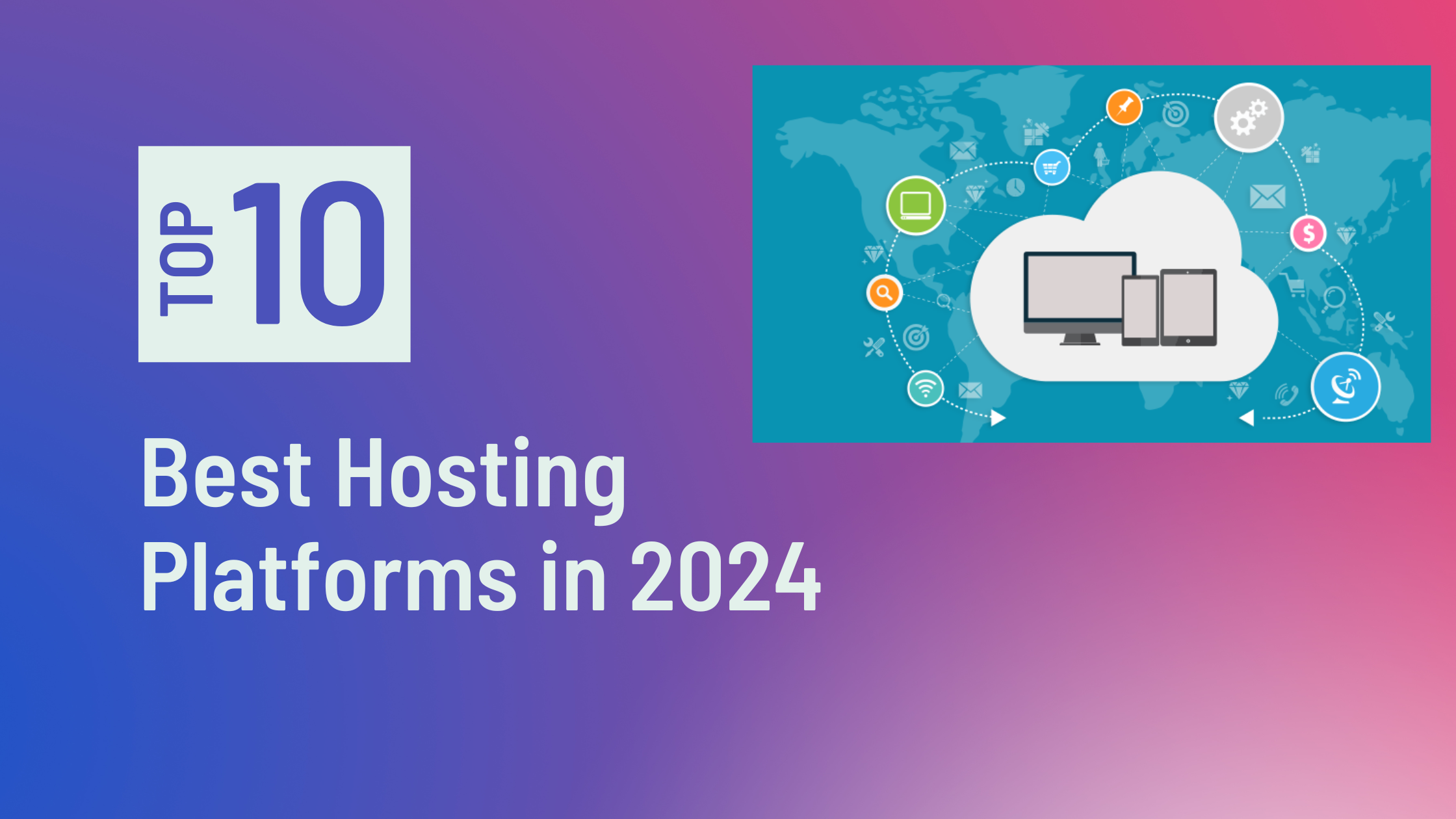You're in the right place if you've ever wondered how some people earn money through their social media accounts. You may have heard the term “Affiliate Marketing” thrown around, but what does it really mean? And more importantly, how can you tap into this revenue stream right from your social media platforms? Let's dive right in!
What is Affiliate Marketing?
Affiliate marketing is a way to earn money by promoting other people’s or companies’ products and services. You, the affiliate, share links to these products, and you get a commission whenever someone makes a purchase through your link. Sounds easy, right? It’s a win-win; companies get more customers, and you get rewarded for your efforts. BigCommerce outlines it as a highly effective method for brands to generate more revenue and for individuals to monetize their audiences.
Why Social Media is the Ideal Platform
Now, why is social media the perfect playground for affiliate marketing? First of all, social media platforms are like bustling market squares where everyone hangs out these days. According to Datareportal's 2022 Global Overview Report, there are 4.48 billion social media users worldwide. That’s a massive pool of potential customers!
Furthermore, social media allows you to engage directly with your audience. Unlike traditional advertising, you can interact with your followers, answer their questions, and respond to their comments. This interaction builds trust, which is a crucial factor when it comes to convincing someone to click on your affiliate link and make a purchase.
Whether you’re a beginner or at an intermediate level, in leveraging the potential of social media for affiliate marketing, we'll be covering everything from choosing the right social media platform and building your profile to tracking your performance and understanding the legal aspects.
So, are you excited? Let’s transform your social media presence into a money-making machine!

Before diving into the social media side of things, we should fully understand what we're talking about when we say “Affiliate Marketing.” Understanding this concept inside and out will be the cornerstone of your success.
Affiliate Marketing Definition and Key Elements
Affiliate marketing is, in its simplest form, a method of earning money online by promoting products or services from another business and earning a commission for any sales generated through your unique affiliate link. Let me break it down:
- Merchant: This is the company or individual who is selling the product or service. They're the ones giving you the affiliate link.
- Affiliate: That's you! You're promoting the product or service and earning a commission for any sales made through your unique link.
- Customer: This is the person who clicks on your link and makes a purchase.
Investopedia provides a comprehensive overview of the process if you're looking for more depth.
The Affiliate Marketing Model
Imagine you're an influencer in the pet care niche and have a blog about taking care of dogs. A dog food company approaches you with an affiliate offer. They give you a unique link to their dog food product. You then share this link in your blog posts or social media. Whenever one of your followers clicks on that link and makes a purchase, you get a percentage of the sale. Easy as pie!
Benefits of Affiliate Marketing as a Passive Income Source
Okay, let's talk about benefits. Why would you, or anyone for that matter, want to get into affiliate marketing? Well, for starters, it's an excellent source of passive income. Once you've set up your affiliate links in your blog posts or social media, you can literally make money while you sleep. According to Statista, affiliate marketing spending in the United States alone is expected to reach $8.2 billion by 2022. That's a pretty large pie you'd be getting a slice of.
Another benefit? It's low-risk. Unlike creating your own product or service, you don't have to invest a lot upfront. Your main investments are time and effort. If a product doesn't perform well, you can easily switch to promoting another without incurring any loss.
Lastly, you don't have to handle customer service, product fulfillment, or any of the business operations. Your sole focus is on promotion, making it an ideal side gig or even a full-time income source if you get good at it.
Affiliate marketing is not just a buzzword; it's a highly adaptable and profitable online business model. Whether you're looking to supplement your income or create a full-time business, affiliate marketing offers opportunities for everyone. The key is understanding its ins and outs and leveraging platforms, like social media, to maximize your earnings.
Why Social Media for Affiliate Marketing?
Why is social media such a lucrative space for affiliate marketing? I mean, why not just stick to blogging or SEO strategies? Well, I have a few compelling reasons for you.
Expanding Reach with a Large Audience
First and foremost, let's talk about reach. Social media platforms are like giant arenas where billions of people congregate. According to Oberlo, the average person spends around 151 minutes per day on social media. That’s a lot of time to grab someone’s attention, right? The potential for exposure is enormous!
Building Trust with Followers
Another critical aspect of affiliate marketing on social media is the trust factor. People follow you because they like your content and value your opinion. That trust is golden. In a Nielsen study, 83% of respondents said they trust recommendations from people they know, and social media is an extension of that personal network. When you recommend a product or service, your followers are more likely to take your word for it.
Real-World Examples of Successful Affiliate Marketing on Social Media
Success stories abound when it comes to affiliate marketing on social media. Influencers like Gary Vaynerchuk and Marie Forleo have turned their social media accounts into profitable businesses, largely through affiliate marketing partnerships. They offer value and build trust, making their product recommendations turn into sales.
Statistics on Social Media User Engagement Relevant to Affiliate Marketing
Let's bring out some more numbers to prove the point. Did you know that posts with links to more information are the most preferred type of content on social media, sitting at a 30% preference rate, according to Sprout Social? This shows that people are not just scrolling aimlessly but looking for valuable content; affiliate links can be part of that value.
The large audiences, built-in trust, and high levels of engagement make it a no-brainer for anyone looking to dive into the affiliate marketing world.
Strategies for Affiliate Marketing on Social Media
So, you know what affiliate marketing is and why social media is your go-to playground for it. Now let's talk strategy. This is where the rubber meets the road. Ready? Let's dive in!
1. Content is King: Quality Over Quantity
The most fundamental principle in affiliate marketing on social media is quality content. Your content should be valuable, informative, and engaging to attract followers. According to a HubSpot report, 70% of marketers are actively investing in content marketing, and for a good reason. It’s the content that attracts, engages, and converts your audience. So put some real effort into crafting those posts, stories, or tweets.
2. Transparency is a Must: Disclose Affiliate Relationships
Transparency is not just ethical; it’s also a legal requirement. The Federal Trade Commission (FTC) mandates that you disclose your affiliate relationships to your followers. Simple disclaimers like “#ad” or “#affiliate” will suffice. Honesty breeds trust, and trust is what will make your affiliate marketing efforts fruitful.
3. Use Call-to-Actions Wisely
A Call-to-Action (CTA) is what prompts your followers to take action, like clicking on an affiliate link. Don’t just drop your affiliate link and expect magic to happen. Use compelling CTAs like “Find out more” or “Grab yours today” to encourage clicks. WordStream says emails with a single call-to-action increased clicks by 371% and sales by 1617%.
4. Track Your Performance
Keep a close eye on how your affiliate posts are performing. Tools like Google Analytics can help you track key metrics like clicks, conversion rates, and ROI. Don't be afraid to tweak your strategy if something isn't working.
5. Leverage Hashtags and SEO
Hashtags aren't just trendy; they're useful for increasing the visibility of your posts. Similarly, SEO is not just for blogs. Many social media platforms like Pinterest and YouTube use SEO algorithms. Using relevant keywords can help your posts show up in searches, expanding your reach.
6. Consistency and Scheduling
Consistency is key in social media affiliate marketing. According to CoSchedule, brands that post consistently have better engagement and follower growth. Use social media management tools like Buffer or Hootsuite to schedule your posts in advance.
7. Build Community and Engage
Last but not least, engage with your audience. Respond to comments, ask for feedback, and encourage community discussion. Not only does this foster trust, but it also gives you valuable insights into what your audience wants, helping you tailor your affiliate offers accordingly.
The game is about creating valuable content, transparency, and continually optimizing your approach. Take these strategies to heart, and you'll be well on your way to becoming an affiliate marketing maven on social media.
How to Choose the Right Social Media Platform for Affiliate Marketing
So, you're convinced that affiliate marketing is the way to go and that social media is the perfect launching pad. But wait a minute, there are so many social media platforms out there! The list goes on Facebook, Instagram, Twitter, TikTok, and Pinterest. How do you know which is best for your affiliate marketing endeavors? Don't fret; I've got you covered.
Understanding Your Target Audience
The first step in choosing the right platform is knowing your target audience. Are they young or old? Do they prefer visual content or text-based posts? According to Pew Research, 71% of 18–24-year-olds use Instagram, while 46% of those 65 and older use Facebook. Knowing your audience’s age range and preferences can help you decide where to focus your efforts.
Aligning with Your Niche
Each social media platform has its own set of popular niches. For example, Instagram and Pinterest are fantastic for lifestyle, fashion, and travel niches because they are visually-driven platforms. On the other hand, LinkedIn is excellent for B2B services and professional networking. Research your niche to see where it's most popular and effective. A quick look at industry reports or studies can offer valuable insights.
Assessing Content Types
What type of content do you excel at creating? Videos? Articles? Infographics? Different platforms favor different types of content. For example, TikTok is great for short, engaging videos, while Twitter excels in bite-sized information and quick updates. Choose a platform that aligns with your content creation strengths.
Comparing User Engagement Rates
It's not just about the number of users on a platform but also how engaged they are. For instance, according to Oberlo, Instagram has an average engagement rate of 1.22%, which is higher than Facebook's 0.21%. A higher engagement rate means you're more likely to interact with your audience, which can lead to higher click-through rates on your affiliate links.
Considering Algorithmic Limitations
Algorithms can be a double-edged sword. While they can make your content more discoverable, they can also limit your reach if you don't understand how they work. Instagram, for example, prioritizes posts from users that you interact with the most. Understanding these algorithms can give you a leg up in your affiliate marketing game.
Testing and Experimenting
Last but not least, don't be afraid to experiment. No amount of research can replace real-world testing. Start small; choose one or two platforms and track your performance. Use analytics to see what’s working and what’s not. Platforms like Google Analytics can help you track conversions and other important metrics. Don't like what you see? Tweak your strategy or try a different platform.
Choosing the right social media platform for your affiliate marketing venture is crucial. But remember, it's not set in stone. As you grow and evolve, your choice of platform can, too. The key is to start with a well-informed decision and be agile enough to adapt as you go along.
Common Mistakes to Avoid in Affiliate Marketing on Social Media
Now that you're equipped with the know-how and the strategies, you're pretty much ready to take on the world of affiliate marketing on social media. But hold on, my friend. Let's talk about some common pitfalls you'll want to avoid. Forewarned is forearmed, right?
1. Promoting Too Many Products
Less is more. Promoting too many products can overwhelm your audience and make you come off as insincere. 91% of consumers are more likely to shop with brands that recognize them and provide relevant offers. Stick to products that align with your brand and audience's needs.
2. Ignoring Content Relevance
Every affiliate link you share should be part of a larger narrative. Irrelevant content can turn off your followers quicker than a light switch. Focus on products and services that organically fit into your content and contribute to your story.
3. Neglecting Your Audience
Remember, social media is a two-way street. Failing to engage with your followers can lead to lost opportunities. In fact, according to Sprout Social, 89% of consumers will buy from a brand they follow on social media, but 75% will increase spending with that same brand. Keep the conversation going!
4. Violating Platform Guidelines
Each social media platform has its own set of rules for affiliate marketing. Ignorance is not bliss here; violating these can result in penalties or account suspension. Always familiarize yourself with the guidelines of each platform you're using.
5. Failing to Disclose Affiliate Links
We touched on this earlier, but it's so crucial that it's worth mentioning again. Transparency is non-negotiable. The FTC is clear on the requirement for disclosing affiliate links. So, be open about it; your audience will respect you more for it.
6. Not Tracking and Adjusting
What's not measured can't be improved. Not keeping track of your performance metrics means you're flying blind. As pointed out in our strategy section, tools like Google Analytics can be invaluable for this purpose.
Common mistakes that can easily turn your affiliate marketing dream into a nightmare. But knowledge is power. Avoid these pitfalls, and you'll be way ahead of the game, primed for success in your affiliate marketing journey on social media.
Tips and Best Practices for Success in Affiliate Marketing on Social Media
By now, you should have a firm grasp of the basics, the strategies, and the pitfalls to avoid. Now, let's put the cherry on top with some tried-and-true tips and best practices that can make your affiliate marketing journey on social media smoother and more profitable.
1. Use UTM Parameters for Better Tracking
Want to track your affiliate links like a pro? Use UTM parameters. These little tags added to your URL help you identify where your traffic is coming from. HubSpot has a great guide on how to use them effectively.
2. Be Authentic, Always
Authenticity wins hearts and opens wallets. A Stackla report shows that 90% of consumers say authenticity is important when deciding which brands they like and support. So be yourself, and endorse only those products you truly believe in.
3. High-quality visuals are a Must
High-quality images and videos can significantly boost engagement. According to MDG Advertising, content featuring relevant images gets 94% more views than content without images. Invest in good visuals; it pays off.
4. Utilize Stories and Live Video
Both Instagram and Facebook stories and live videos are excellent tools for engagement. eMarketer reports that people spend an average of 37 minutes daily on social media, a significant chunk of that is on stories and live videos. Use them to showcase products or give behind-the-scenes looks.
5. Partner with Influencers
While this may seem like an advanced tactic, even beginners can benefit from influencer partnerships. Micro-influencers, those with a smaller but more engaged following, can be particularly effective. According to Business Insider, the influencer marketing industry is set to reach $15 billion by 2022.
6. Offer Exclusive Deals to Your Followers
Who doesn't love a good deal? Offering exclusive discounts to your followers can increase conversion rates. According to a ReadyCloud report, 68% of customers leave a business because they feel unappreciated. Special deals can make them feel valued.
7. Keep Learning and Updating
The world of social media and affiliate marketing is ever-changing. Platforms update their algorithms, trends come and go, and consumer preferences evolve. Stay updated with the latest trends by following industry news, attending webinars, and continually educating yourself.
Understanding Algorithms and Engagement
As we near the end of our deep dive into affiliate marketing on social media, let's pull the curtain back on something crucial yet often mystifying: algorithms. Even if you have the best affiliate products and top-notch content, it won't make a dent if no one sees it. So, let's explore how algorithms work on popular social media platforms and how you can use this knowledge to maximize your engagement and earnings.
How Algorithms Work on Popular Social Media Platforms
Most platforms use algorithms that take into account factors like user engagement, relevance, and content quality to determine what shows up in people's feeds. For example, Instagram's algorithm considers factors like timeliness, engagement, and the relationships between accounts. On the other hand, Facebook prioritizes posts from friends and family but also considers the popularity and engagement level of posts from Pages and Groups.
Tips to Boost Post Visibility and Engagement
- Quality Over Quantity: Consistently posting high-quality content is more effective than spamming your feed. According to Buffer, quality content that is valuable and relevant to your audience is favored by most algorithms.
- Interactive Content: Use polls, quizzes, and Q&A sessions to get your audience engaged. These types of posts usually see higher engagement rates.
- Timing Matters: Post when your target audience is most active. Tools like Later can help you find the best times to post for maximum visibility.
- Use Hashtags Wisely: Hashtags can help increase the discoverability of your posts. However, don’t overdo it. Stick to relevant and trending hashtags.
Common Mistakes That Affect Your Engagement Rates Negatively
Avoid these common pitfalls to keep your engagement rates healthy:
- Ignoring Comments and Messages: Failing to interact with your audience can hurt your engagement rates and discourage future interactions.
- Clickbait: Misleading headlines or content can result in penalties from the platform's algorithm.
- Over-Promotion: Too much promotional content can turn off your audience and lead to lower engagement rates.
Tracking Your Performance
Let's break down why analytics are important, what tools you can use, and which KPIs to keep an eye on.
Importance of Analytics
Understanding your metrics can help you refine your strategy, understand your audience better, and ultimately, increase your earnings. It's like the GPS for your affiliate marketing journey; you wouldn't drive without directions, would you?
Most Popular Tools for Tracking Performance
- Google Analytics: A comprehensive tool that gives you insights into your audience and how they interact with your content.
- Native Platform Analytics: Most social media platforms offer in-built analytics that provide essential metrics like engagement rate, reach, and clicks.
Key Performance Indicators (KPIs) to Monitor
- Click-Through Rate (CTR): Measures the percentage of people who clicked on the affiliate link compared to those who viewed the post.
- Conversion Rate: The percentage of completed goals (sales, sign-ups) to the total number of visitors.
- Engagement Rate: Takes into account likes, shares, and comments to gauge how engaging your content is.
Socail Media Advanced Strategies
So, you've got the basics down, your affiliate links are generating some income, and you're ready to take it to the next level. That's awesome! In this section, we'll delve into some advanced strategies you can employ to supercharge your affiliate marketing game on social media. These aren't your run-of-the-mill tips; we're talking about leveraging paid ads, diving into email marketing, and exploring cross-promotions and collaborations. Ready to level up? Let's go!
Leveraging Paid Ads to Boost Affiliate Sales
One surefire way to expand your reach is through paid advertising. Platforms like Facebook and Instagram offer incredibly targeted ad options. You can specify your audience by age, location, interests, and even behaviors. This ensures that your affiliate products get in front of the eyes most likely to convert. WordStream says the average conversion rate for Facebook Ads is 9.21% across all industries. That's a decent rate, considering you're reaching a broader audience who might not have found you otherwise.
Utilizing Email Marketing Alongside Social Media
Don't underestimate the power of email marketing when it comes to affiliate sales. It allows you to reach your audience directly without the limitations imposed by social media algorithms. Plus, emails have a higher conversion rate compared to social media—about 1.22% on average. By integrating your social media and email marketing strategies, you can nurture leads more effectively and encourage repeat sales. Share exclusive content, offers, and personalized recommendations to your email list to keep them engaged and ready to take action.
Cross-Promotions and Collaborations
Why go it alone when you can join forces? Partnering with other brands or influencers in your niche can amplify your reach and credibility. Imagine this: You have a skincare affiliate product. You team up with an influencer who does a ‘Skincare Routine' video and includes your product. Not only do you reach their substantial following, but the endorsement also acts as a vote of confidence. However, make sure the collaboration is organic and makes sense for both parties. The goal is mutual benefit, a win-win situation.
Using one of these advanced strategies alone can significantly boost your affiliate earnings, but imagine the kind of results you could see by combining them! Start with one, test and track your performance, then integrate more as you become comfortable. Top earners in the affiliate marketing world use these strategies; there's no reason you can't join them. So go ahead, roll up those sleeves, and get to work on implementing these advanced strategies in your affiliate marketing playbook.
Conclusion
Wow, what a journey we've been on together! From understanding the nuts and bolts of affiliate marketing, navigating the mysterious world of social media algorithms, and even dipping our toes into some advanced strategies. You're now equipped with a comprehensive guide to maximize your affiliate marketing efforts on social media. So, what's stopping you? It's time to put these strategies into action!
Summary of Key Points
- Understanding Affiliate Marketing: Know your products and your audience.
- Choosing the Right Platforms: Where does your target audience hang out?
- Content Strategies: It's not just what you say but how you say it.
- Understanding Algorithms: Work with the system, not against it.
- Tracking Your Performance: Metrics are your best friend.
- Advanced Strategies: Ready to level up? Paid ads, email marketing, and collaborations are your next steps.
Your Turn
Now that you're armed with this information, it's your turn to dive into the lucrative world of affiliate marketing. And hey, don't forget to keep an eye on Frugal4Ever’s upcoming affiliate marketing section. We'll be pumping it full of insights, tips, and tools to help you on your journey. Trust me, you won't want to miss it!
Additional Resources
- “Influence: The Psychology of Persuasion” by Robert B. Cialdini
- Udemy: The Complete 2023 Affiliate Marketing Course
- Social Media Examiner – A comprehensive blog covering all aspects of social media marketing.
- Neil Patel's Guide on Social Media Marketing
Take that first step and venture into the world of affiliate marketing on social media. Here's to your success, and I can't wait to see you thrive!










